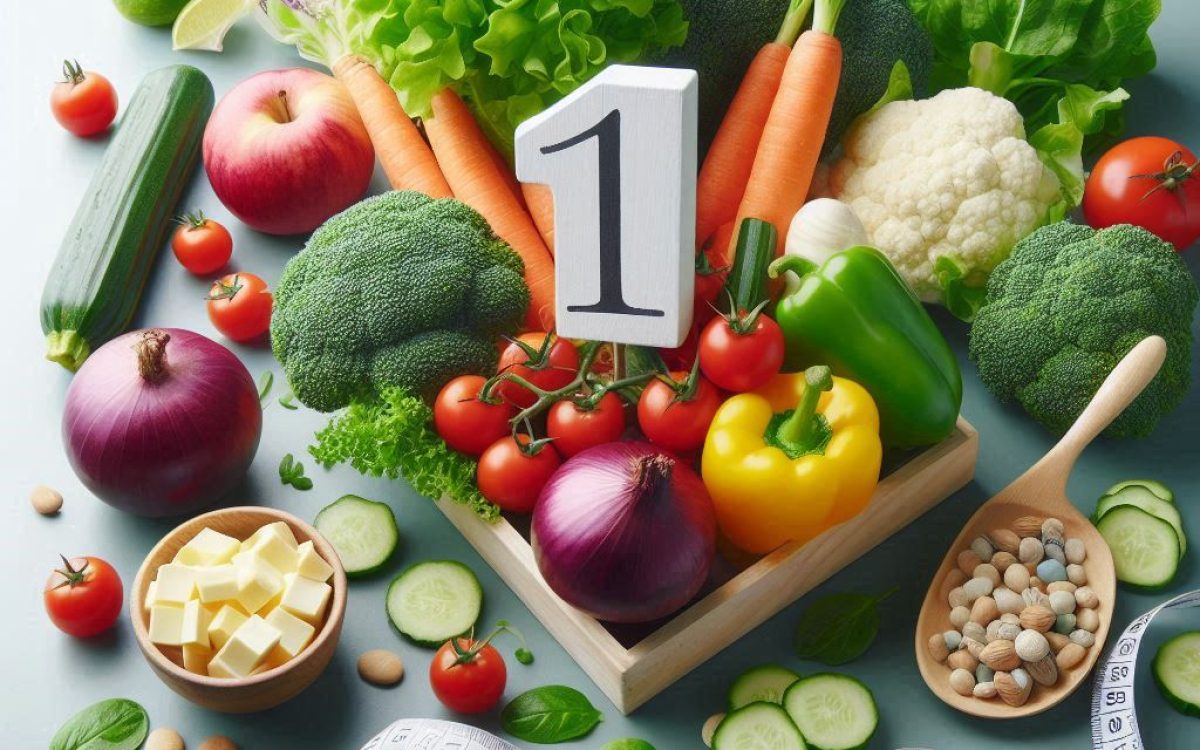In a world facing rising rates of obesity, heart disease, and diabetes, adopting a healthy lifestyle is more important than ever — and fresh vegetables may be one of the simplest, most powerful changes you can make. These colorful, nutrient-packed foods are more than just a side dish — they are the foundation of long-term wellness.
The Nutritional Value of Fresh Vegetables:
Fresh vegetables deliver a powerful combination of essential nutrients that your body craves every day. These include:
- Vitamins: C, A, K, and folic acid — vital for immunity, vision, and cell growth.
- Minerals: Potassium, magnesium, calcium, and iron — for nerve function and strong bones.
- Dietary fiber: Supports digestion and helps manage appetite.
- Antioxidants: Compounds like beta-carotene and lycopene protect cells and reduce inflammation.

Health Benefits of Daily Vegetable Consumption:
Eating vegetables every day can transform your health in the following ways:
- Supports Heart Health: Regular vegetable intake helps lower blood pressure and reduce cholesterol levels.
- Reduces cancer risk: Cruciferous vegetables like broccoli contain protective compounds.
- Boosts Immunity: The vitamins and minerals in vegetables enhance the immune system and improve the body’s ability to fight off infections.
- Improves Skin and Hair Health: Vegetables rich in Vitamins A and C help renew skin cells and improve skin appearance while also strengthening hair.
- Promotes Eye Health: Dark green and orange vegetables are high in carotenoids essential for good vision.

Types of Vegetables and Their Health Benefits:
- Leafy greens like spinach, lettuce, and arugula: Great for heart health, rich in folic acid, and help lower blood pressure.
- Cruciferous vegetables like broccoli and cauliflower: Packed with cancer-fighting compounds and support detoxification.
- Root vegetables like carrots and sweet potatoes: Excellent sources of beta-carotene and provide sustained energy.
- Water-rich vegetables like cucumbers and zucchini: Help hydrate the body and cleanse the kidneys.
- Colorful vegetables like bell peppers and beets: Full of antioxidants and promote overall wellness.

How to Incorporate Fresh Vegetables into Your Daily Diet:
- Start your day by adding spinach or tomatoes to your breakfast.
- Eat a rich, varied salad with every main meal.
- Use vegetables in soups and stews.
- Replace processed snacks with carrot sticks or cucumber slices.
- Try fresh vegetable juices like carrot or celery juice.
Tips for Preserving Vegetable Benefits:

- Choose fresh, organic vegetables whenever possible.
- Wash vegetables thoroughly to remove pesticides and dirt.
- Avoid overcooking vegetables to preserve their nutritional value.
- Store vegetables in a cool, dry place to keep them fresh.
Common Myths About Vegetables:
- Myth: “Frozen vegetables aren’t healthy.”
Fact: Frozen vegetables are often frozen immediately after harvesting, preserving their nutritional value. - Myth: “Raw vegetables are always better.”
Fact: Some vegetables, such as tomatoes and carrots, offer greater benefits after cooking, as heat helps release antioxidants. - Myth: “Eating only vegetables is enough for perfect health.”
Fact: While vegetables are vital, a balanced diet also includes fruits, whole grains, healthy proteins, and beneficial fats.

Fresh vegetables are nature’s ultimate health booster — simple, affordable, and life-changing. When you fill your plate with vibrant produce, you’re not just eating — you’re healing, energizing, and protecting your body from within.
Ready to take control of your health?
Join us at Nutrition Travels for expert tips, delicious recipes, and global insights on living a vibrant, balanced life. Your path to wellness starts with your next bite.





